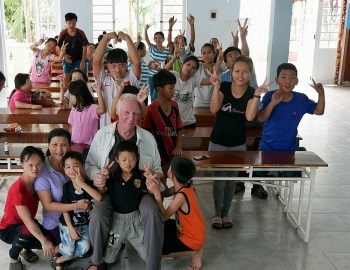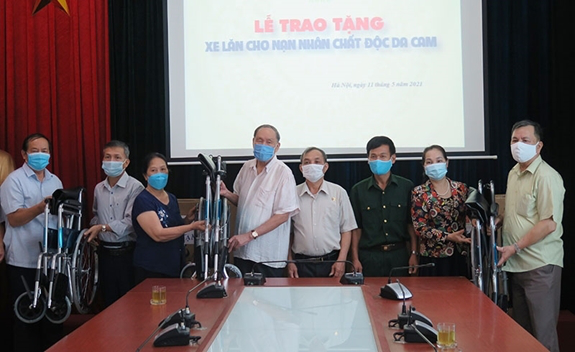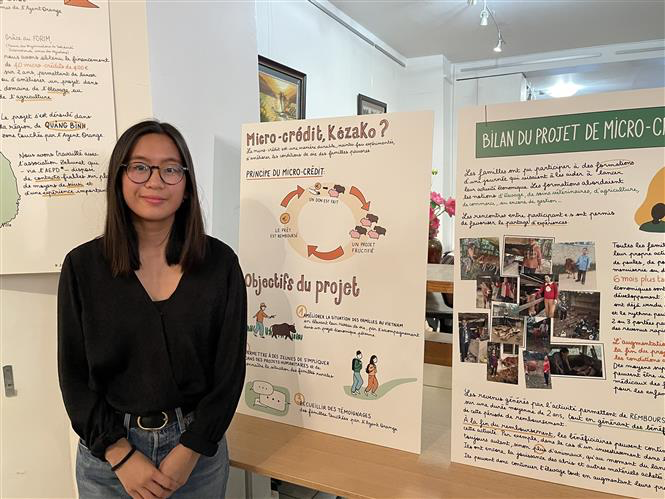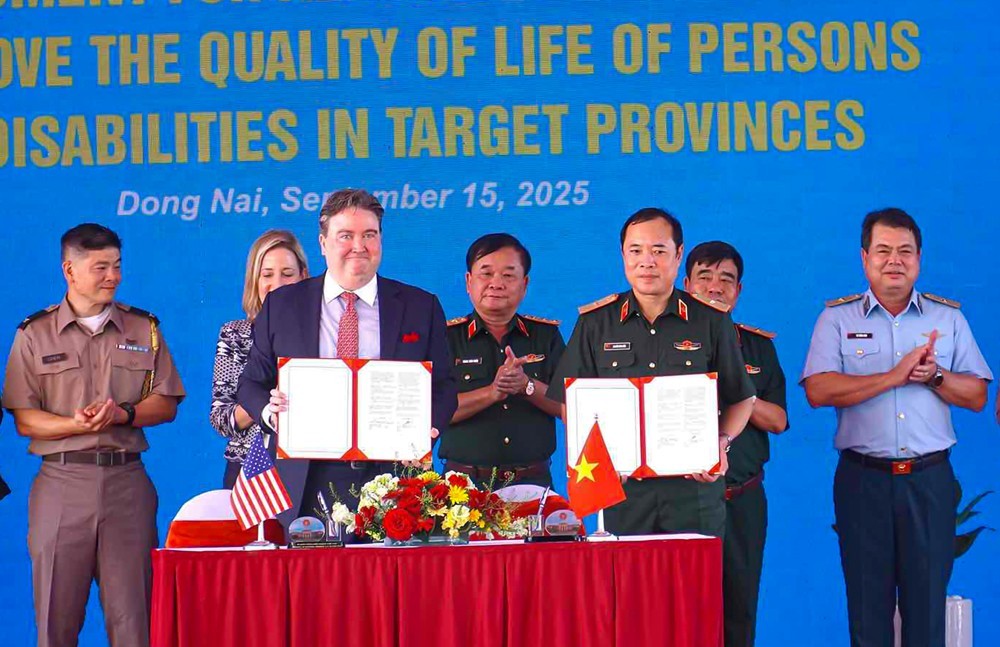Merle Ratner: We Are Always With You - Victims of Agent Orange
| For Agent Orange Victims, the "Wounds of War" Still Ache | |
| Creating Better Conditions to Support Victims of Agent Orange | |
| First Graphic Exhibition on Vietnam's Agent Orange in France |
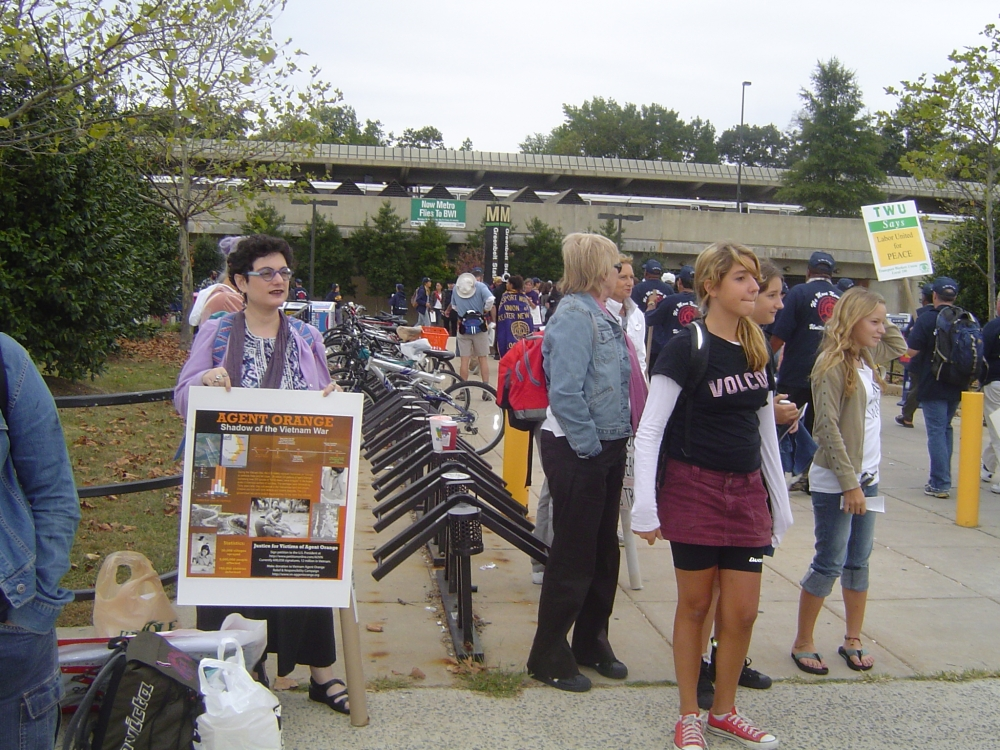 |
| Merle Ratner was at a demonstration opposing Agent Orange manufacturer. |
What is the biggest issue of concern for overcoming the aftermath of the use of Agent Orange in Vietnam?
We have worked for many years to push the United States government to meet their responsibility to Vietnamese Agent Orange victims by providing the assistance to the victims. This includes everything from healthcare and supporting their families to vocational training and physical therapy. They also have the responsibility to clean up the toxic hot spots where Agent Orange remains in Vietnamese soil and sediment.
Today, the United States Congress and government have given millions of dollars to clean up the hot spot in Da Nang, which is completed, and they are now contributing to the remediation of Bien Hoa, which is still in progress.
However, the US has given comparatively less money to take care of the human victims of Agent Orange. While they have allocated some millions of dollars, it has been wholly inadequate to meet the needs of the many victims of Agent Orange and their families. Those who were directly sprayed with Agent Orange during the US war, suffer from cancers and other medical conditions and their children and grandchildren suffer from terrible birth defects and other conditions. A public health crisis is now looming because the first (and some of the second) generations in Agent Orange impacted families are passing away, leaving the youngest victims, born with severe birth defects, without caregivers. These young victims will need to be housed, fed, and taken care of in future years.
So, our organization, the Vietnam Agent Orange Relief & Responsibility Campaign has worked with Congresswoman Barbara Lee, a long time champion of peace and justice in the US and around the world and she has introduced a bill in the US congress to assure that the US government meets its responsibility to the victims both in Vietnam and the US. Congresswoman Lee’s bill calls on the US government to finish cleaning up the hot spots in Vietnam and to provide comprehensive assistance to Vietnam’s Agent Orange victims, including health care, rehabilitation, day care, vocational training, income generation projects for Agent Orange families, etc. Her bill also calls for the children of male US Vietnam veterans to receive assistance from the US government and for Vietnamese Americans affected by exposure to Agent Orange to receive medical care. We also have added language about the consequences of Agent Orange in Laos and Cambodia and are working with the Lao and Cambodian communities to add specific requests in the next version of the bill.
What should we do to improve the situation, please?
Now, the spread of the Covid-19 pandemic all over the world is impacting the Vietnamese people and particularly the victims of Agent Orange, who are often poor and sometimes immune compromised due to their illnesses. Agent Orange victims therefore face particular dangers, particularly from the new Delta variant of COVID and need help to avoid infection and to cope with economic hardships they may be facing.
The US government needs to send more vaccines to Vietnam, particularly for Agent Orange victims. This is in addition to meeting their responsibility to help victims of Agent Orange in Vietnam overall.
How do you recommend on the activities taking care of agent orange victims in Vietnam?
We support and work with our partner organization, the Vietnam Association for Victims of Agent Orange/dioxide (VAVA) which is the official representative of Vietnam’s Agent Orange victims. We support their work which is very broad in scope: they organize and hold the programs of health centers, care centers to day-care centers, vocational training operate health and rehabilitation centers, distribute aid to victims, rally support from within Vietnam and internationally. So, we support their work and contribute funds when we can. We continue to urge the United States government to fund the programs of VAVA because VAVA’s members are Agent Orange victims and their supporters and they know best how to address the issues facing the victims. They have been doing this since 2004. We also believe that the US government should fund VAVA’s programs directly so that the assistance can be used most effectively and really meet the needs of the victims.
Could you please share the basic achievements in activities supporting Vietnamese agent orange victims done by the Vietnam Agent Orange Relief & Responsibility Campaign (VAORRC) and yourself over the years?
I won’t talk about any personal achievements because we in the Agent Orange campaign work together as a group. I am a Co-founder and Co-coordinator of the Agent Orange Relief & Responsibility Campaign. We have a great leadership core and Board that makes the work we do possible. We also collaborate with Agent Orange solidarity groups internationally.
We were formed in 2005 as we started working with VAVA. We have done a lot of educational work in the US including speaking on radio and TV and working with journalists that write newspaper and magazine articles. We do educational work among the US people about the Agent Orange issue and have traveled to many cities with delegations of Agent Orange victims while hosting 12 delegations from VAVA. These delegations visited many areas of the US and spoke at schools, veteran’s centers, community centers, churches and temples, and at veteran’s events. We have also sent delegations to Vietnam to support Agent Orange victims and VAVA.
An important part of our work, which I mentioned earlier, is the work to advance Congresswoman Barbara Lee’s bill to provide significant assistance to Agent Orange victims and to finish the cleanup of the hot spots.
Part of our work is with the public health and science community and we got the American Public Health Association, the largest public health association in the world, to pass a policy resolution urging the US to give comprehensive aid to Agent Orange victims in Vietnam as an urgent matter of public health.
We had planned to continue all these activities but unfortunately the COVID pandemic has prevented us from bringing delegations to the US or attending activities that VAVA planned in Vietnam as well as gathering in public here. We continue to work for passage of the bill in Congress.
And we recently have been doing more educational work with the Lao and Cambodian communities to share experiences along meeting with Vietnamese Americans. We have very strong partners in the Vietnamese, Lao and Cambodian communities because they understand the impact of Agent Orange both in their countries of origin and among their communities in the US.
Finally, while we are not mainly a fund-raising organization, we raise money and send it to VAVA for their projects to care for Agent Orange victims.
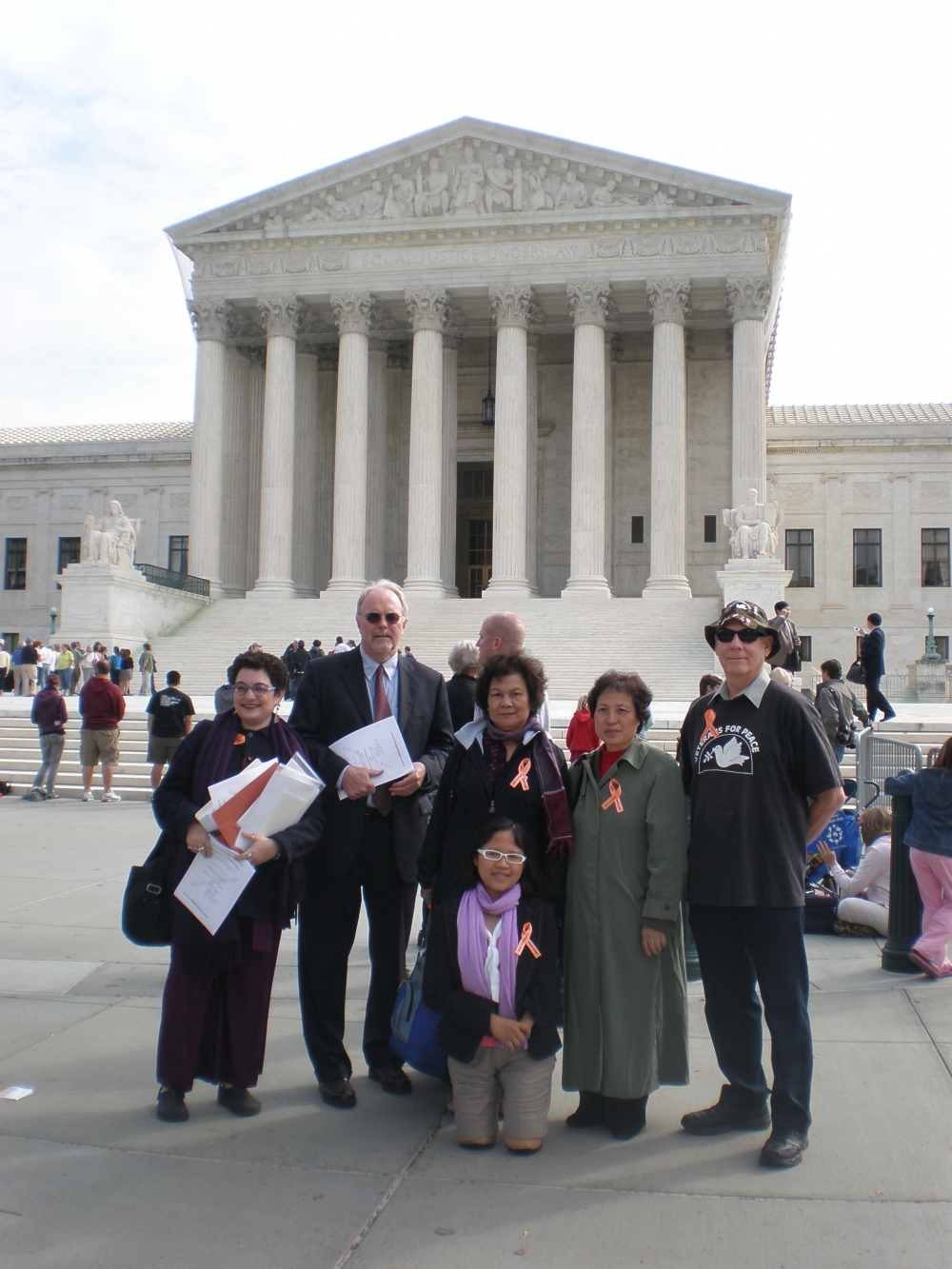 |
| Members of the core of the Vietnam Agent Orange Relief & Responsibility Campaign with members of the VAVA women’s delegation including Agent Orange victims Tran Thi Hoan and Dang Hong Nhut. |
In your opinion, what do international communities need to do to support Vietnamese victims in the future?
Each country has a different relationship with Vietnam. The US government is the one responsible for the war, for the war crimes it committed including the use of chemical warfare, and for the harm this did to Vietnamese people and land. So, our movement in the US is particularly responsibility to force its government to meet its responsibility to heal the wounds of war, to provide comprehensive assistance to Vietnamese Agent Orange victims and to clean up the hot spots.
So, for us and for other countries that were allies of the US during the war, most important is political solidarity and political pressure on the US government and other Western governments to aid Agent Orange victims directly and to make sure the money gets to the victims in Vietnam.
This is connected to building people-to-people solidarity between each country and Vietnam including raising money to help the victims.
The other key area is to pressure the companies that manufactured and profited handsomely from Agent Orange. The biggest producers of Agent Orange are Dow Chemical and Monsanto. While the US government has been forced to give some amount of money, for cleaning up the hot spots and for the victims, Dow and Monsanto have given zero, nothing! They continue to deny their responsibility towards the victims and refuse to pay even a penny. An international corporate campaign against Dow and Monsanto is urgently needed to put economic pressure on them by use of boycotts and other means, to force them to meet their responsibility.
Could you please share your message for Vietnamese Agent Orange victims?
I would say to the Vietnamese Agent Orange victims that we are with you, we support you, we will never stop fighting for you and we will continue fighting for the US government to meet its responsibility to provide compensation to the victims and cleanup of the land of Vietnam!
I also want to say that many Vietnamese Agent Orange victims are strong, and they are fighting for justice! We really admire the Vietnamese Agent Orange victims who fight for themselves and their fellow victims, who came and testified in congress, who came and stood with us in the actions against Dow Chemical, who came and spoke to literally tens of thousands of American in our speaking tours. Many victims have in Vietnam have shown that victims can be students, teachers, writers, scientists, and they are overcoming obstacles and prejudice! The younger victims are becoming activists for justice and doing educational work with VAVA to end prejudice against people with Agent Orange and other disabilities.
So, I would say, we admire you, we respect you, we are with you! We will continue the work we are doing, we will build a strong relationship between your organizations, the Vietnam Association for Victims of Agent Orange/ Dioxin. We will continue to work together hand in hand, we’ll never be separated and we will build the work stronger, deeper, and more active. We will continue to work in the international movement, to support the work that VAVA is doing, to build international solidarity and support the Agent Orange victims.
Thank you very much!
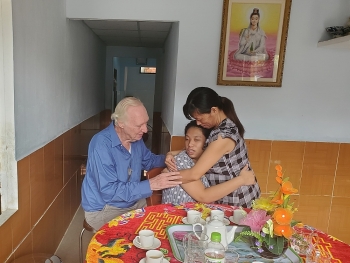 | American Veteran Promises to Continue Supporting Agent Orange Victims Matthew Keenan, the only American veteran affected by Agent Orange currently living in Vietnam, has spent the last 6 years helping Vietnamese agent orange victims |
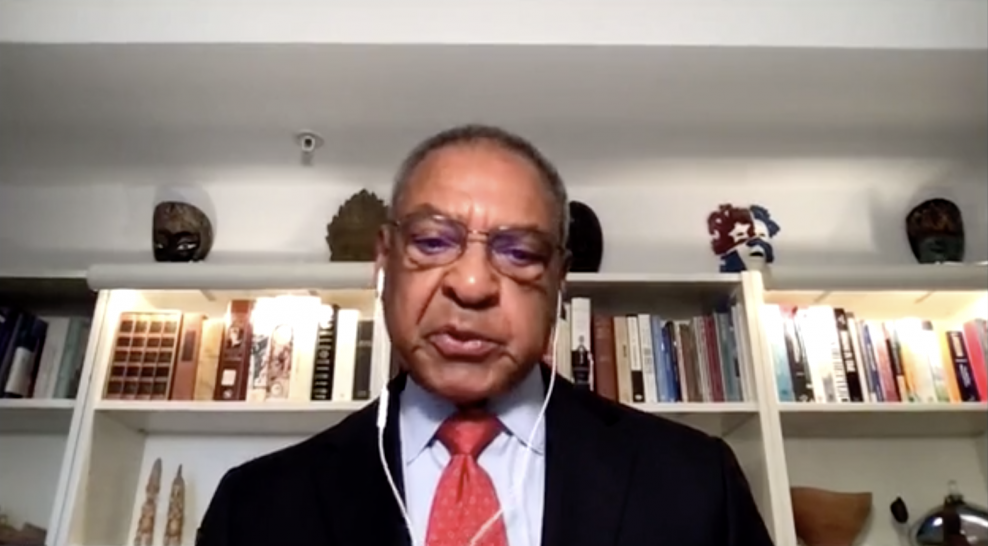 | 50 Years After The War, Vietnamese Still Suffer From Consequences Considering Vietnam's experience both in war and in peace, Vice Chairman of the United States Institute of Peace sees the courage and hopes that the ... |
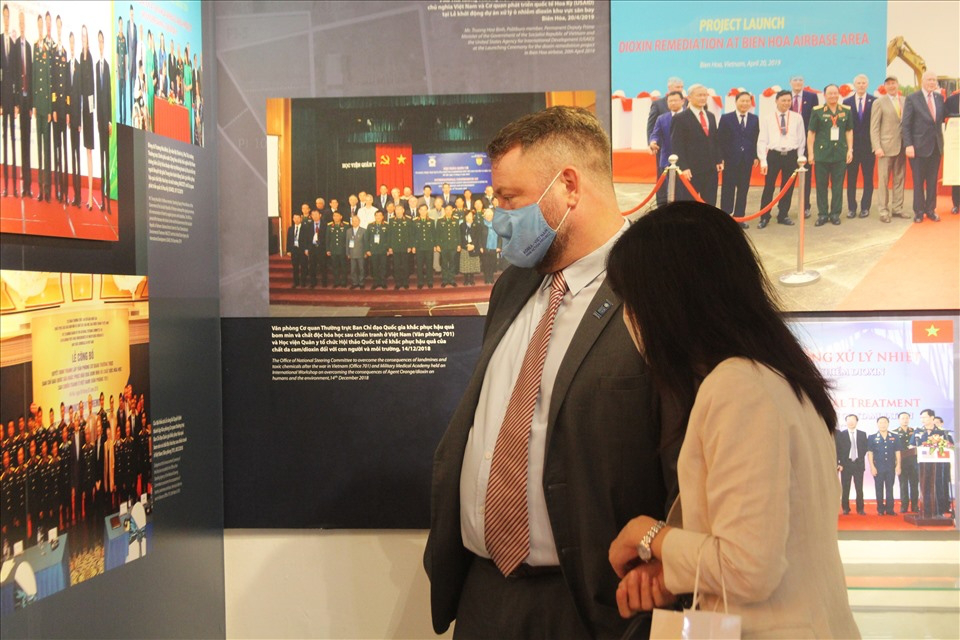 | 60 Years of Pain: Exhibition on the Lingering Effects of Agent Orange On July 13, the Vietnam Association for Victims of Agent Orange/Dioxin, the National Action Centre for Toxic Chemicals and Environmental Treatment, Office 701, the International ... |
Recommended
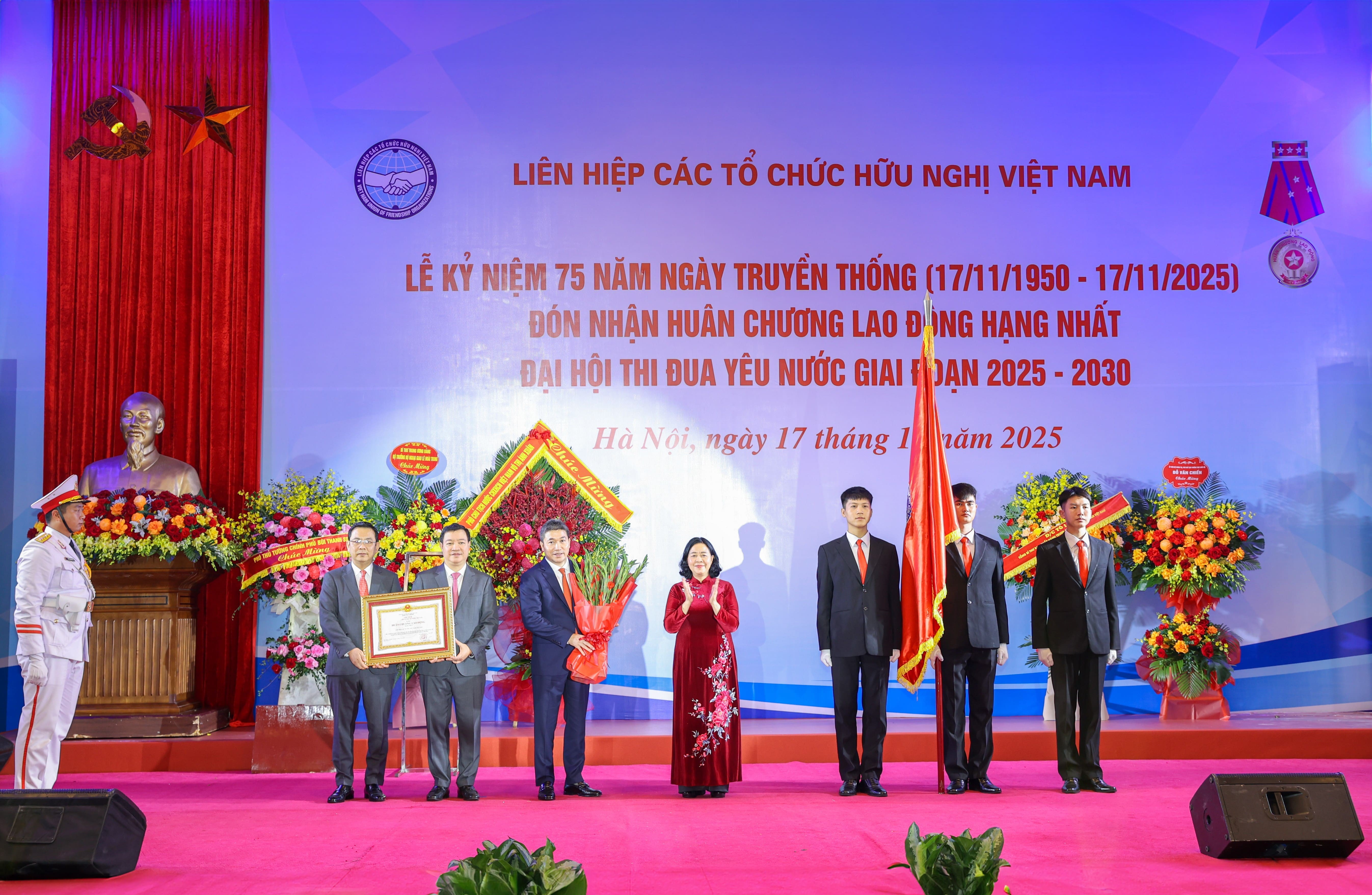 Friendship
Friendship
People-to-People Diplomacy: Change to Reach Further
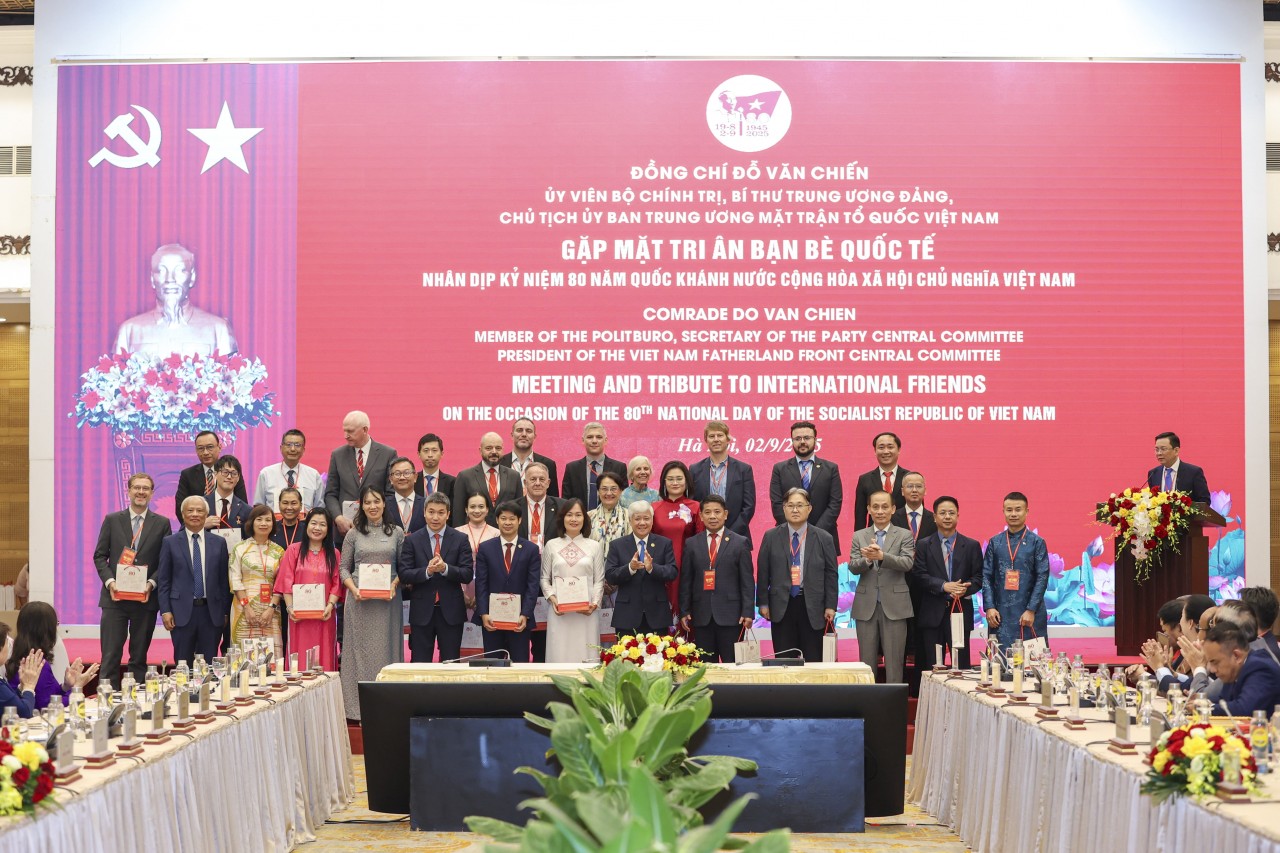 Focus
Focus
Outstanding Highlights of Viet Nam’s People-to-People Diplomacy in 2025
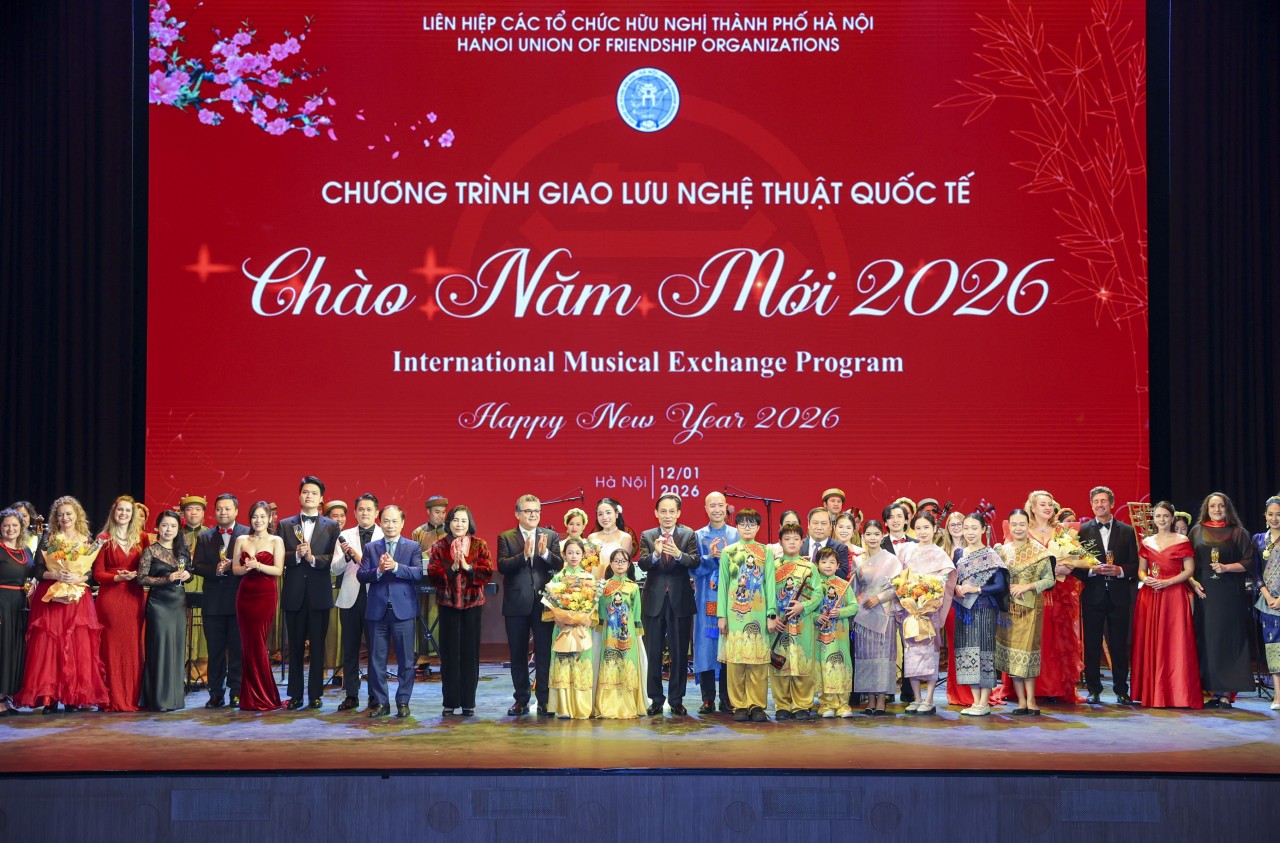 Friendship
Friendship
Hanoi Union of Friendship Organizations: Spreading Values of Peace in Heart of Capital
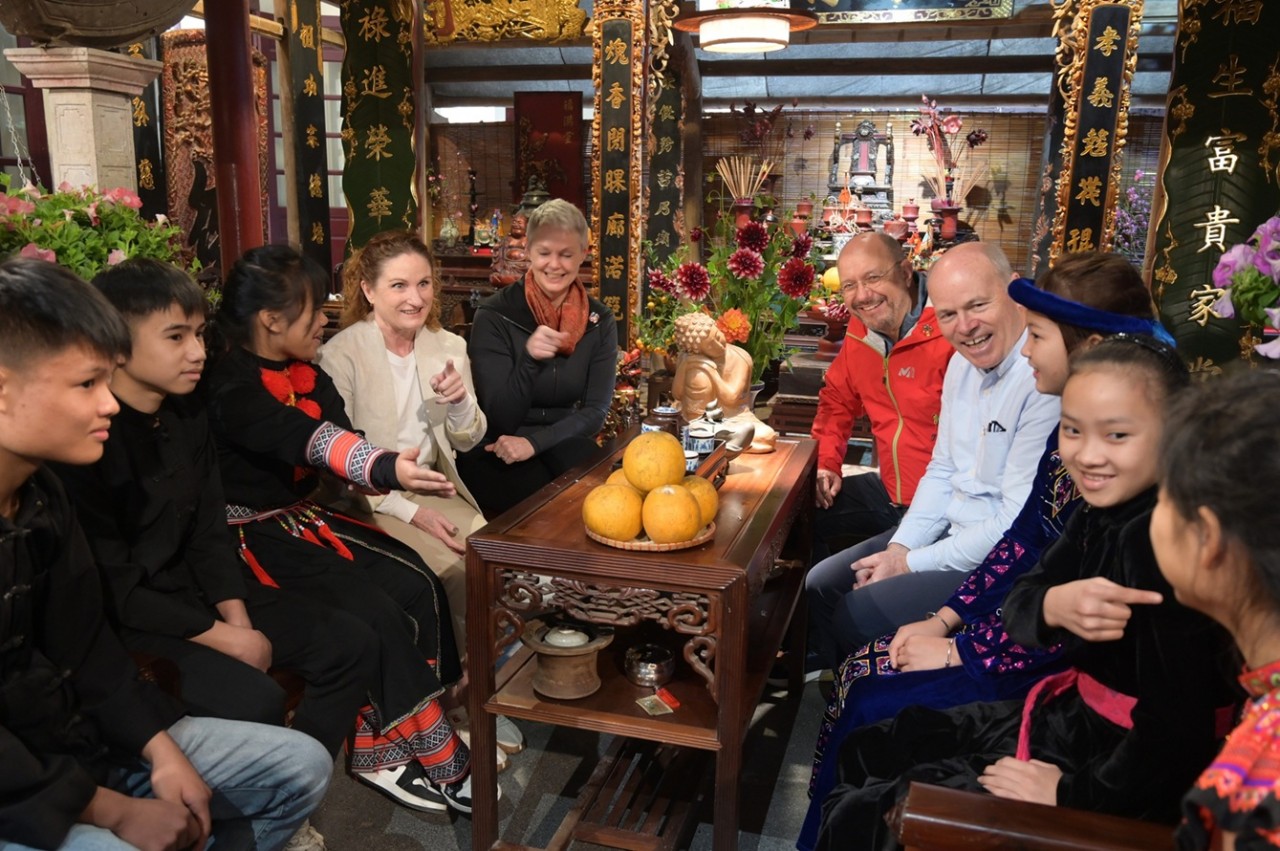 Friendship
Friendship
G4 Ambassadors to Vietnam Extend Greetings for the New Year of the Horse
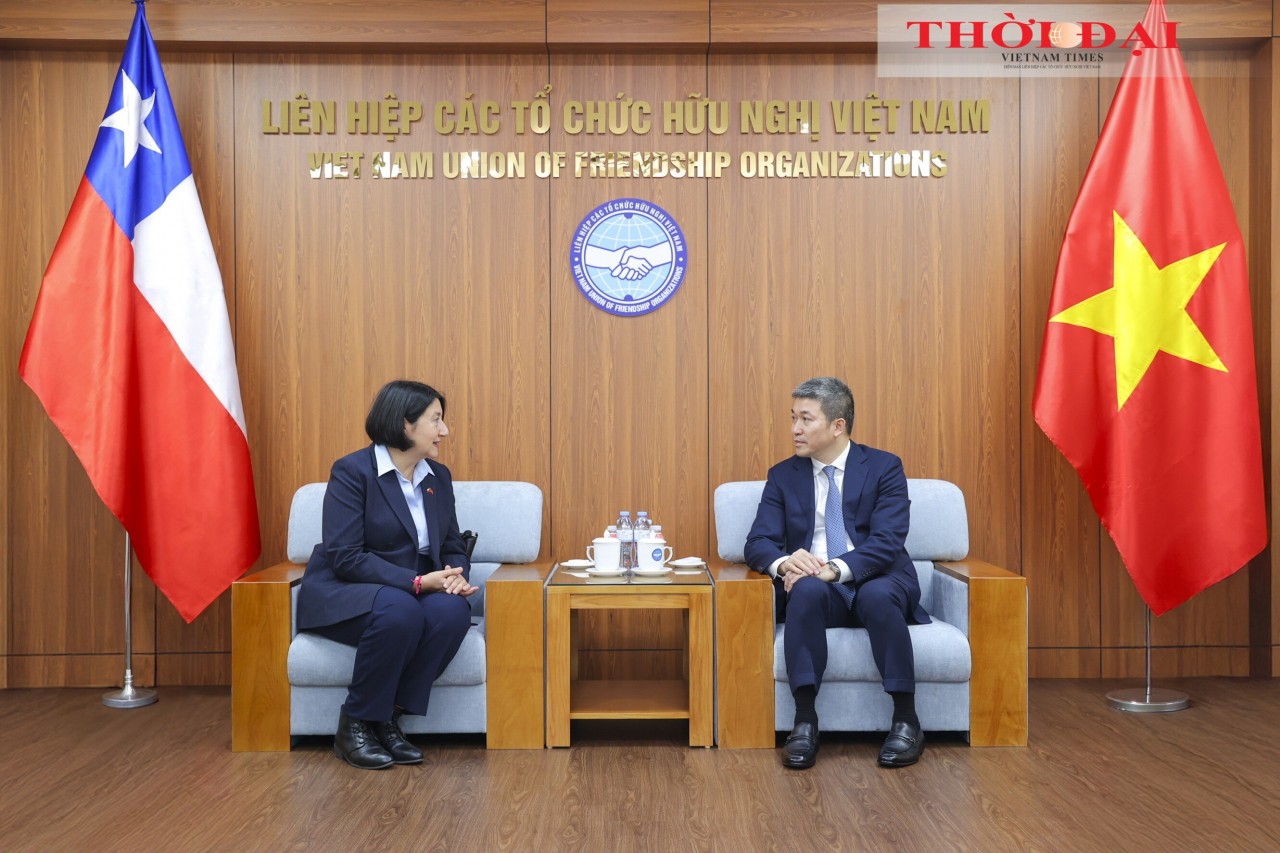 Friendship
Friendship
Promoting People-to-People Cooperation on the Occasion of the 55th Anniversary of Vietnam-Chile Relations
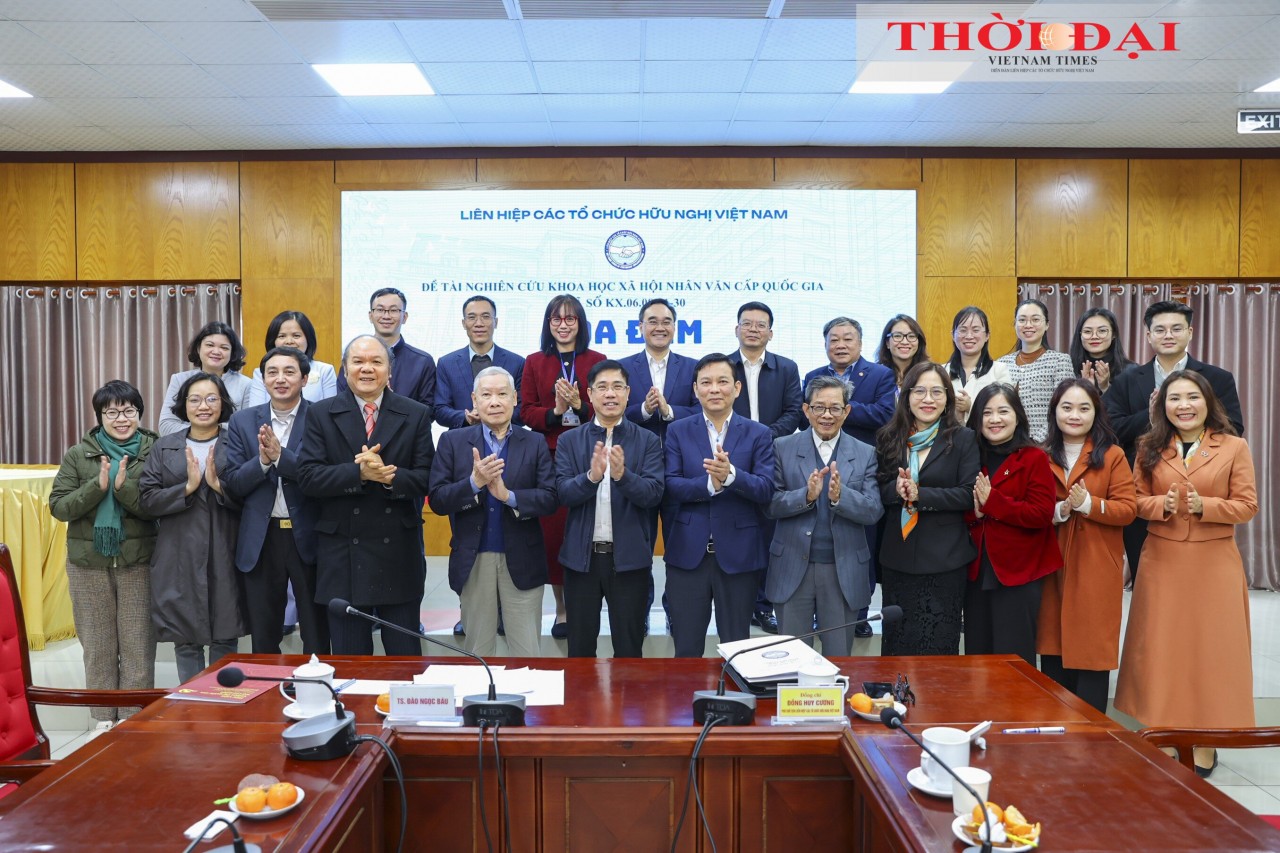 Focus
Focus
Seminar on “The Scientific Foundations of People-to-People Diplomacy in the World”
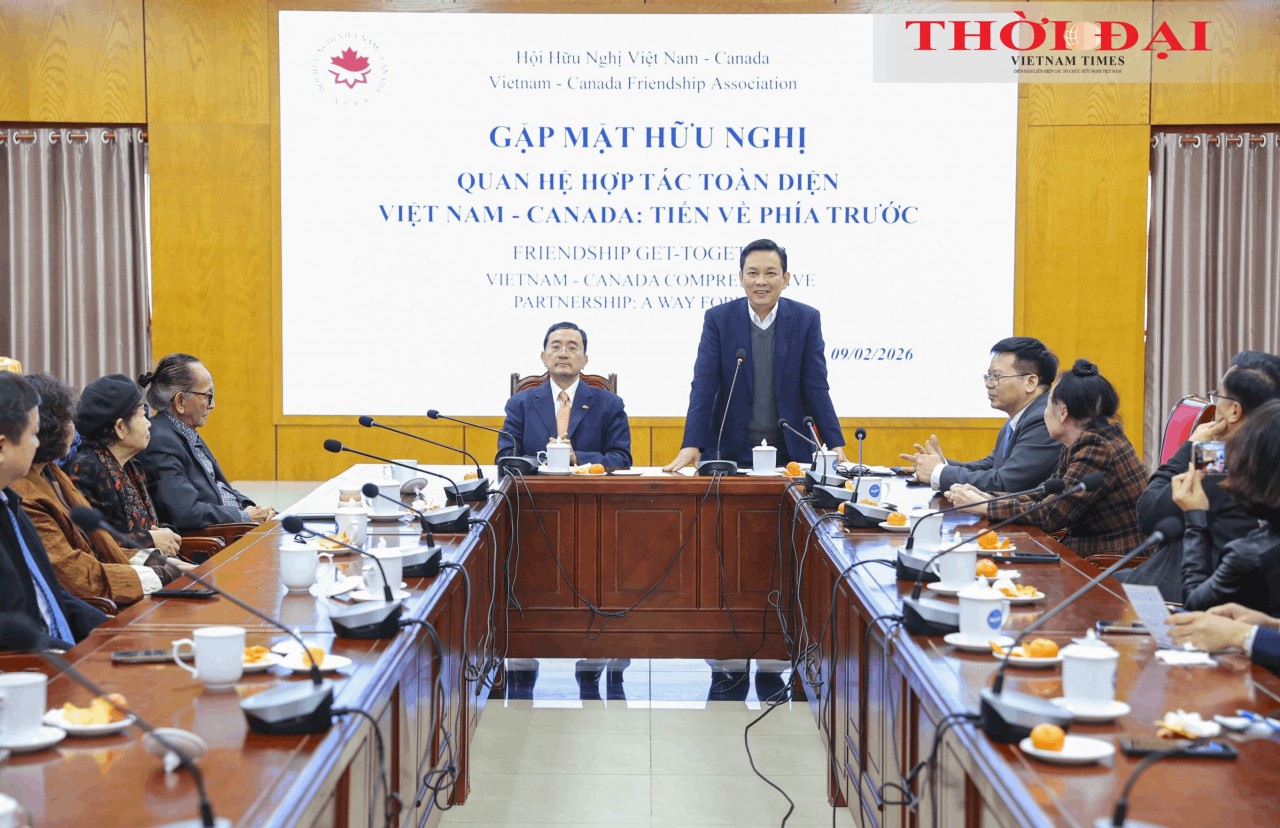 Friendship
Friendship
Vietnam-Canada Friendship Meeting: Advancing Comprehensive Cooperation through People-to-People Diplomacy
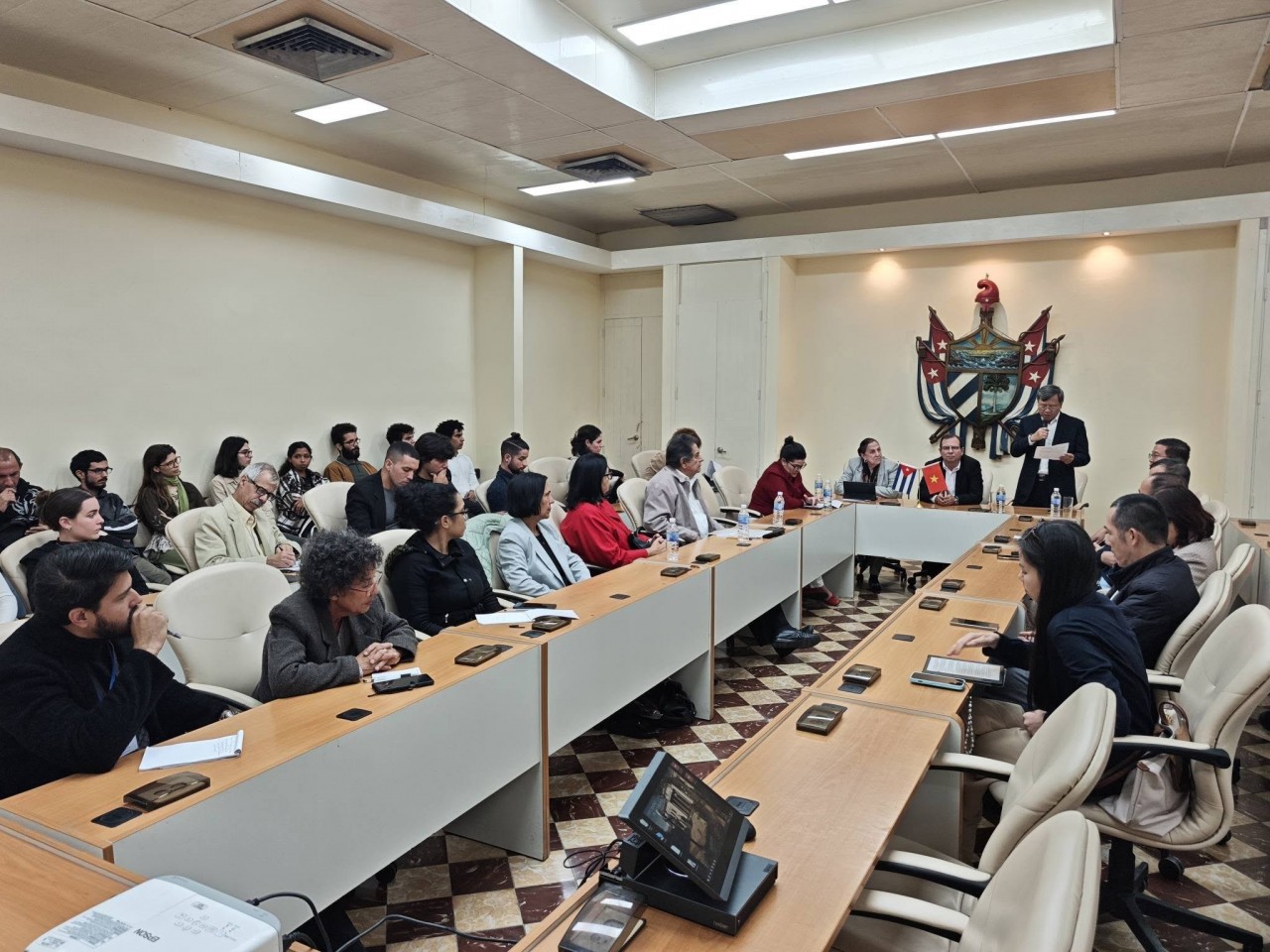 Friendship
Friendship

